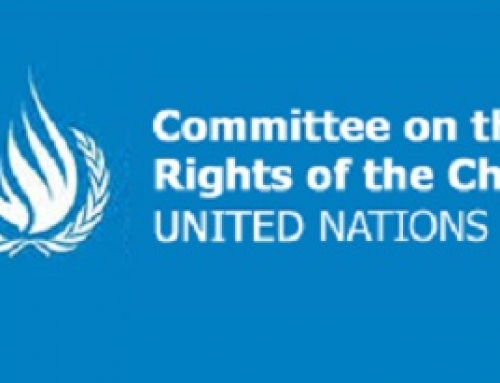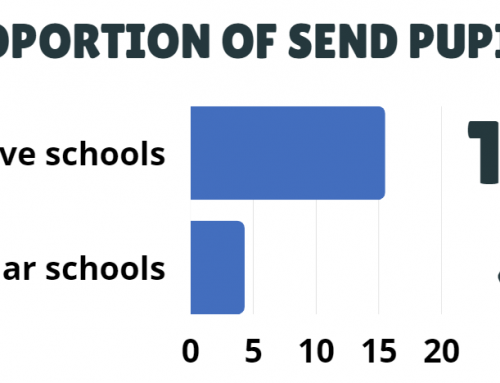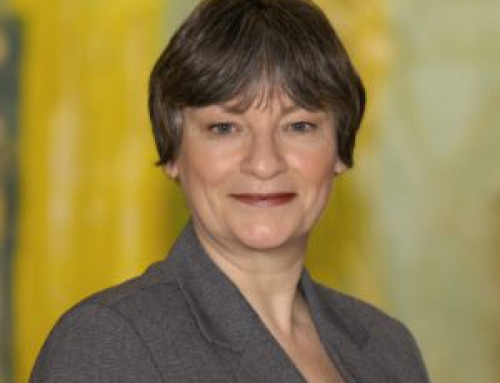Comprehensive Future
Immediate Release
16. 1. 2012
Comprehensive Future welcomes Labour’s decision to pray against the School Admissions Code as it is not what was consulted upon
Government has made much of the change introduced in the new School Admissions Code now in Parliament, which allows anyone or any body to object to the adjudicator about unfair admissions for all state- funded schools ie including academies. Comprehensive Future welcomed this change during the consultation which ended in Summer, but the final Code in Parliament differs from that consulted upon in one very important respect in that it severely restricts the objections which can be made to the adjudicator.
If the Code is agreed as as proposed no objections can be made to:
- an ‘agreed variation’ ie variations to the requirement on academies to comply with the Code which they agree with the Secretary of State under his powers in the Code (para 4 page 3.) which allow him to do this where there is what is referred to as ‘demonstrable need’ .
- increases in the Planned Admission Number (PAN) ie expansion
These restrictions were not in the Code which went out to consultation in May.
Margaret Tulloch Secretary of Comprehensive Future said – These restrictions will mean that no-one can object to a school expanding or to any agreements the Secretary of State makes with individual academies or free schools allowing them not to comply with the Code. It is not fair to introduce these changes after the consultation.
End
Notes
1. In his Ministerial Statement Nick Gibb draws attention to the 1,700 responses received, which he said ‘broadly welcomed’ the proposals.
(The DfE analysis of the responses can be found at – http://media.education.gov.uk/assets/files/pdf/d/departmental%20response%20to%20admissions%20consultation.pdf)
2. The consultation document with the draft code (para 6.1) consulted upon in May said – ‘In line with our plans to de-regulate the system we shall enable anyone who feels local proposals to increase PAN (planned admission numbers) are unreasonable to refer an objection to the Schools Adjudicator’. (paras 1.3, 3.4) in the draft Code consulted upon indicate that objections could be made to increases in PAN.
And – para 3.3 in the draft Code said ‘Anyone who considers that any maintained school or Academy’s arrangements are unfair or unlawful, or not in compliance with the Code or relevant law relating to admissions, can make an objection to the Schools Adjudicator.
3. But in the Code before MPs para 3.3 goes on to say –
The following types of objections cannot be brought:
a) objections that seek to remove selective arrangements at a maintained school (which are permitted under section 105 to 109 of the SSFA 1988) or a selective Academy;
b) objections about own authority admission’s decision to increase its PAN;
c) objections in respect of an agreed variation from the Code in relation to admission arrangements for an Academy;
d) objections to arrangements which raise the same or substantially the same matters as the adjudicator has decided on for that school in the last 2 years; and
e) anonymous objections
The Code requires that the criteria used to allocate places are ‘clear, fair and objective’. But if anyone considers that agreed variations allow academies criteria which are not clear, fair and objective (a new catchment area for example) they will not be able to object.
4. In the committee stage of the Education Bill Nick Gibb said – We shall change the regulations on powers to object, so that anyone with an interest or issue can object to admission arrangements in their area. That gives the public and parents greater powers than those in current legislation (29th March 2011)
Considering Lords Amendments Nick Gibb said –Secondly, under amendment 23, a new clause will allow anyone—absolutely anyone—to object to the adjudicator about school admission arrangements. This builds on our decision to bring complaints about admission arrangements at academies and free schools into the remit of the schools adjudicator—a popular move in this House when we last discussed it. (14th November 2011)





